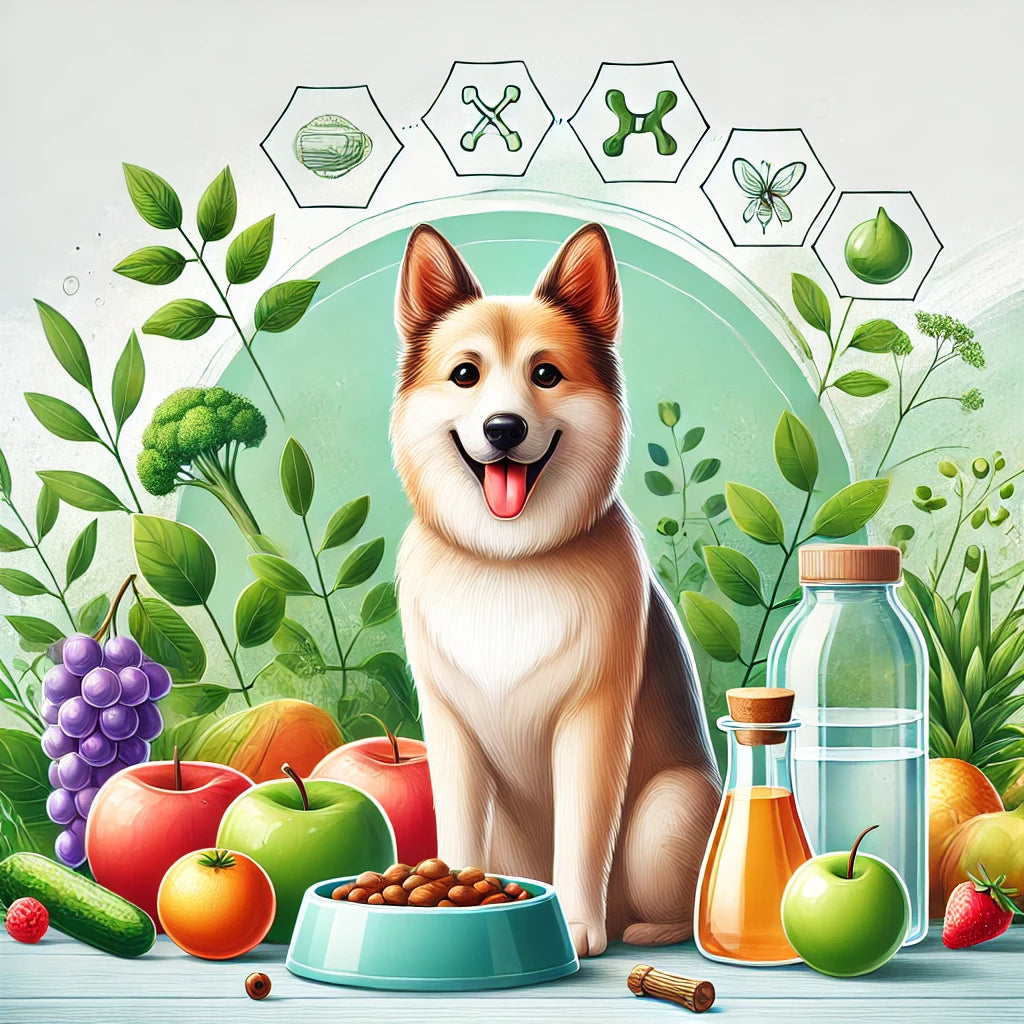When it comes to managing cancer in dogs, understanding what fuels tumor growth is key to improving outcomes. Just as plants thrive on sunlight and water, tumors rely on specific factors to grow and spread. But what if we could disrupt these processes? This article explores the underlying "fuel" for tumors in dogs and how pet parents can make informed choices to starve these dangerous growths and support their dog’s health.
The Three Pillars of Tumor Growth: What Fuels Cancer in Dogs?
Cancer in dogs isn’t random—it thrives on certain biological and environmental conditions. The three main factors that feed tumors are sugar, inflammation, and oxidative stress. Let’s break them down:
1. Sugar: The Tumor’s Favorite Fuel
Cancer cells are notorious for their insatiable appetite for glucose. Unlike normal cells, which can use fat or protein for energy, tumors are heavily reliant on sugar to fuel their rapid growth.
- How it works: Tumors consume glucose at a much higher rate than normal cells, a phenomenon known as the Warburg effect.
- What to avoid: High-carb dog foods, treats with added sugars, and table scraps like bread or pasta.
- How to fight back: Opt for a low-carb, high-protein diet rich in healthy fats like omega-3s, which can deprive tumors of their favorite fuel source.
2. Chronic Inflammation: A Breeding Ground for Tumors
Inflammation is the body’s natural response to injury or infection, but when it becomes chronic, it creates an ideal environment for tumors to grow.
-
Sources of inflammation:
- Processed foods with additives or preservatives.
- Environmental toxins like pesticides or secondhand smoke.
- Obesity, which contributes to systemic inflammation.
-
How to reduce it:
- Include anti-inflammatory foods like fish oil, turmeric, and blueberries in your dog’s diet.
- Provide regular exercise to maintain a healthy weight.
- Consider natural supplements like Chuanxiong (Szechuan Lovage), known for its inflammation-reducing properties.
3. Oxidative Stress: Damaging Cells and Encouraging Tumors
Oxidative stress occurs when there’s an imbalance between free radicals and antioxidants in the body. This damage can lead to mutations in cells, creating a fertile ground for tumor growth.
-
What contributes to oxidative stress:
- Poor-quality kibble lacking essential nutrients.
- Pollution and exposure to harmful chemicals.
- Stress and a sedentary lifestyle.
-
How to combat it:
- Supplement your dog’s diet with antioxidants like vitamin E, selenium, and green tea extract.
- Provide a stress-free environment with plenty of mental stimulation and physical activity.
Surprising Tumor "Feeders" You Might Be Overlooking
While sugar, inflammation, and oxidative stress are well-known contributors to tumor growth, there are some unexpected factors that can also fuel cancer in dogs:
1. Toxins in Drinking Water
Contaminants like heavy metals and pesticides in tap water can contribute to oxidative stress. Use a water filtration system to provide clean, toxin-free water for your pet.
2. Excessive Vaccination or Medication
While necessary in many cases, overuse of certain medications or vaccines can strain the immune system. Work with your vet to create a balanced healthcare plan.
3. Poor Gut Health
The gut plays a crucial role in regulating inflammation and the immune system. Include probiotics and prebiotics in your dog’s diet to maintain a healthy gut microbiome.
Can Tumors Be "Starved" in Dogs?
The idea of "starving" tumors is both exciting and controversial. While it’s impossible to eliminate all factors that contribute to tumor growth, you can create an environment in which cancer cells struggle to thrive.
- Dietary changes: Transition to a ketogenic or low-carb diet with your vet’s approval. These diets aim to deprive tumors of glucose while providing your dog with sustainable energy.
- Natural therapies: Incorporate supplements like NAC (N-acetylcysteine) or CBD oil to reduce oxidative stress and inflammation.
- Lifestyle adjustments: Reduce environmental toxins, maintain a healthy weight, and provide plenty of mental and physical stimulation.
Building a Cancer-Fighting Plan for Your Dog
No single approach can "cure" cancer, but a multifaceted plan targeting the factors that feed tumors can make a significant difference. Here’s how to get started:
- Consult Your Vet: Always work with a veterinary professional to create a customized plan.
- Reevaluate Your Dog’s Diet: Transition to a nutrient-dense, low-sugar diet rich in healthy fats and antioxidants.
- Incorporate Natural Remedies: Explore herbs and supplements like turmeric, Chuanxiong, or mushroom extracts for their cancer-fighting properties.
- Focus on Prevention: Even if your dog is cancer-free, these steps can help prevent future health issues.
Final Thoughts
Understanding what feeds tumors in dogs empowers pet parents to take proactive steps in managing cancer. By addressing sugar, inflammation, and oxidative stress, you can create a hostile environment for cancer cells while boosting your dog’s overall health. With the right combination of diet, lifestyle, and veterinary care, you’re not just fighting cancer—you’re giving your dog the best chance at a happy and healthy life.

